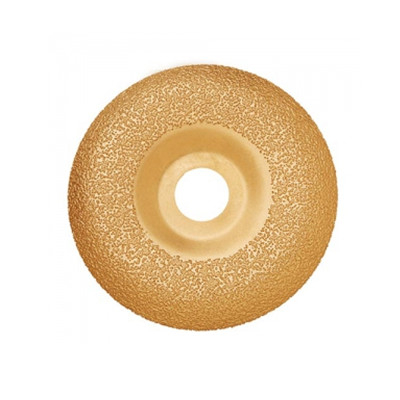Diamond Wheels: Revolutionizing Precision Grinding
2024-07-15
In the world of precision grinding and cutting, diamond wheels have carved out a niche for themselves thanks to their unparalleled hardness and efficiency. These tools, embedded with diamond abrasives, are essential for industries requiring high precision and durability. In this blog, we will explore what diamond wheels are, their types, benefits, and applications across various industries.
What are Diamond Wheels?

Diamond wheels are grinding wheels with diamond abrasives embedded on the cutting edge. These wheels are used for cutting, grinding, and polishing hard materials such as ceramics, glass, gemstones, and metals. The diamond, being the hardest natural material, provides exceptional cutting and grinding efficiency.
Types of Diamond Wheels
1. Resin Bonded Diamond Wheels: These are made by bonding diamond particles with a resin. They are suitable for grinding tungsten carbide, ceramics, and non-ferrous metals. Resin-bonded wheels offer good cutting performance and surface finish.
2. Metal Bonded Diamond Wheels: In these wheels, diamond particles are bonded with a metal matrix, usually bronze. Metal-bonded wheels are ideal for grinding glass, ceramics, and hard metals. They provide a long service life and are resistant to wear.
3. Vitrified Bonded Diamond Wheels: These wheels use a vitrified bond, which is a glassy ceramic bond that provides a strong structure. Vitrified bonded wheels are used for precision grinding of high-hardness materials and offer high accuracy and durability.
4. Electroplated Diamond Wheels: These have a single layer of diamond particles electroplated onto the wheel's surface. They are used for applications requiring high precision and can be manufactured with very fine diamond grits.
Advantages of Diamond Wheels
1. High Efficiency: Diamond wheels can cut and grind hard materials quickly and efficiently, reducing machining time.
2. Precision: They offer high precision and excellent surface finish, making them ideal for intricate and detailed work.
3. Durability: Diamond wheels have a long lifespan due to the hardness of diamond abrasives, reducing the need for frequent replacements.
4. Versatility: They can be used for a wide range of materials, including metals, ceramics, glass, and composites.
5. Heat Resistance: Diamond wheels have excellent heat dissipation properties, preventing overheating and damage to the workpiece.
Applications of Diamond Wheels
1. Aerospace Industry: Used for grinding and shaping aerospace components made from hard materials such as titanium and composites.
2. Automotive Industry: Essential for precision grinding of engine components, transmission parts, and other high-hardness materials.
3. Electronics Industry: Used in the manufacture of semiconductor wafers, glass substrates, and other electronic components.
4. Tool and Die Making: Employed for grinding and sharpening cutting tools and dies, ensuring high precision and durability.
5. Jewelry Making: Crucial for cutting, grinding, and polishing gemstones and precious metals.
Conclusion
Diamond wheels are indispensable in industries that require precision, efficiency, and durability. Their ability to handle hard materials with ease makes them a preferred choice for various applications. As technology advances, the development of diamond wheels continues to evolve, offering even greater performance and versatility. Whether in aerospace, automotive, electronics, or jewelry making, diamond wheels are revolutionizing the way we cut, grind, and shape materials.


